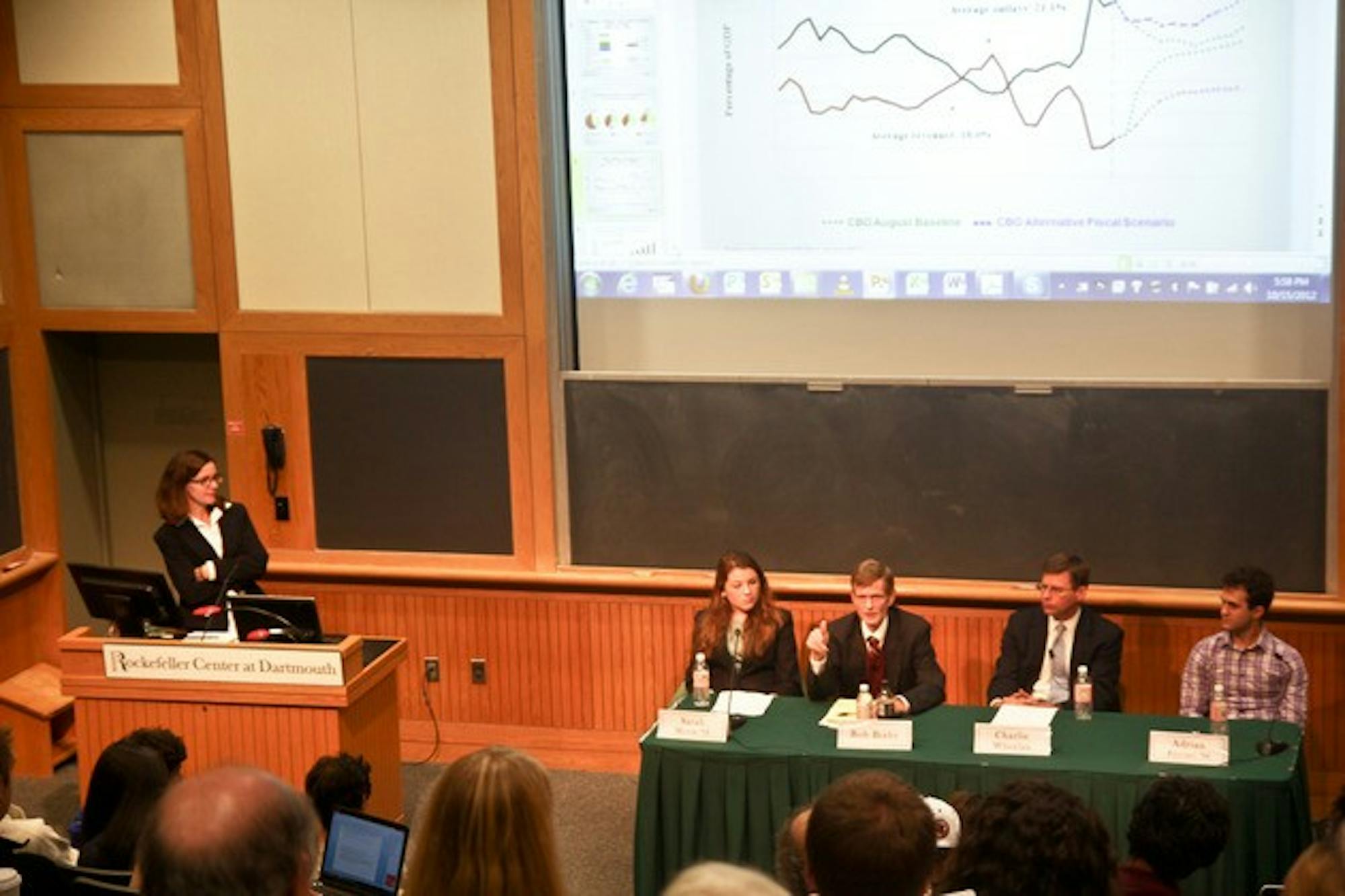Students are particularly concerned about the fiscal crisis because they will soon enter the work force, according to Bixby.
"Students should be interested because the future is going to affect them the most," Bixby said. "If the debt burden becomes so high that it hampers the economy, then the slow growth that we've be seeing in the recent years will be a more lasting phenomenon, and that clearly has an effect on younger people who are entering the work force looking for jobs."
Sarah Morse '15 expressed an optimistic view on students' current situation with the financial crisis.
"We are a politically aware generation," Morse said. "As people become more aware of the consequences, they'll become more politically active, and hopefully we will see some change soon."
Bixby discussed mandatory and discretionary government spending. Given the aging American Baby Boomer population, the cost of programs like Medicare will increase to accommodate the increase in recipients, Bixby said.
Wheelan spoke on the problem of creating an informed electorate. Americans want to cut spending, but when asked specifically where the cuts will be, they are unable to provide a unified answer, according to Wheelan.
"People are not willing to spend more, not willing to identify specific cuts, not willing to spend less and get less," Wheelan said.
Wheelan also talked about the need for public activism, noting the importance of the public concerning itself with issues that directly affect it. Currently, candidates avoid the reality that sacrifices are necessary in this economic climate, according to Wheelan.
Bixby said he saw his role in the panel as providing facts and helping people think about the consequences of not doing anything to fix the current situation.
Ferrari, who discussed the economy in the context of the presidential race, said that there is a current disconnect between candidates' platforms and realistic economic policies.
"All these good plans require sacrifices," Ferrari said. "Our political leaders don't necessarily want to have this conversation with voters. If they talk about lowering government benefits or having to pay more taxes, then they're not going to win their race."
The panel's incorporation of student opinions was beneficial, Bixby said after the panel.
"Bringing in students helps us address what's on students' minds," Bixby said. "It's really important to have students on the panel, both in terms of having a positive effect on their fellow panelists and in attracting other students."
Julia Isaacson '15, who is in Wheelan's Public Policy 20 course, said she was able to connect to both the student and professional panelists.
"I thought the student and professor combination was really effective," Isaacson said. "Bixby and Wheelan did a good job discussing the facts on a higher level, but as a student in the audience, I was able to relate to the students on the panel more."
Audience member Kunal Rathi '16 said that having students and professionals on the panel together was beneficial.
"The student opinions that they brought in were very pertinent." Rathi said. "I also thought it was really interesting that the panelists had solutions in mind on how to cap the different exemptions in ways that would be politically feasible."




